STAR ORTHODONTICS PATIENT INFORMATION
Frequently Asked Questions
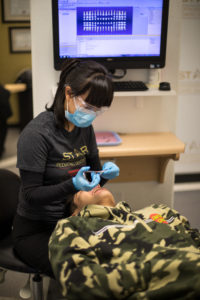
Most importantly, don’t nurse your children to sleep. Do not put them to bed with a bottle of milk, juice, or formula. When a child is sleeping, any liquid that remains in the mouth can support the bacteria that produce acid and harm the teeth. A simple pacifier or bottle of water is fine.


Of course not. Many of these foods are incredibly important to your child’s health. Starch-based foods are much safer to eat for teeth when eaten with an entire meal. Foods that stick to teeth are also more difficult to wash away by water, saliva, or other drinks. It’s important that you talk to our staff about your child’s diet and to maintain proper dental care.


As we stated earlier, initiate a balanced diet. Analyze the frequency in which starch-based foods are eaten. These types of foods include bread, pasta, potato chips, etc. In addition, sugar is found in more than just candy. All types of sugars can promote tooth decay. For example, most milk-based products contain sugar. Peanut butter and jelly sandwich is a favorite for bagged lunches. Unfortunately, it includes sugar not only in the jelly but also in the peanut butter. For less sugar and more flavor and nutrients, try replacing jelly with fresh fruit slices (apples, pears, or bananas) or chopped dried fruit. Go easy on the peanut butter, though — it’s high in fat. Choose the “no-salt-added” kind for less sodium.


Absolutely. It is important that you initiate a balanced diet for your child so that their teeth develop appropriately. In addition, this will positively affect healthy gum tissue surrounding the teeth. Please note that a diet high in sugar and other forms of carbohydrates may increase the probability of tooth decay.


It is important that your child receives a naturally-balanced diet that includes the important nutrients your child needs in order to grow. A daily diet should include the major food groups of meat/fish/eggs, vegetable/fruit, bread/cereal as well as milk and other dairy products.


If you do not reside in a community that has fluoridated water or have the appropriate amount of natural fluoride in your well water, your child will need some sort of supplement in their diet. We can help you determine how much of a supplement your child needs to be based upon their weight, age, current water fluoride level, and brand of toothpaste.
Frequently Asked Questions Regarding Tooth Loss
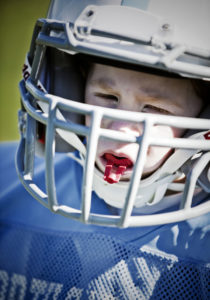

Simple. Sport-related dental injuries can be reduced or prevented by wearing mouth guards. Childproofing your home can help reduce injuries at home. In addition, regular dental check-ups will contribute to preventative care.


Call our office immediately to schedule an appointment. To help comfort your child, rinse out the mouth with cold water and apply a compress.


Contact our office as soon as possible. Time is of the essence! Our goal is to save the tooth and prevent infection. Rinse the mouth out with water and apply a cold compress to reduce swelling. It’s possible that if you can find the broken tooth fragment, it can be bonded back to the tooth.


Rinse the knocked out tooth in cool water. Do not scrub the tooth. If possible, replace the tooth in the socket and hold it there with clean gauze. If you can’t put the tooth back into the socket, place the tooth in a container of milk (or water if milk is not available.) Come to our office immediately. Feel free to call our emergency number if it is after hours. The tooth has a better chance of being saved if you act immediately.


Contact our office as soon as possible.
Frequently Asked Questions Regarding Sealants


This treatment is quite affordable, especially when you consider the value of protection against tooth decay. Most dental insurance companies cover sealants. Check with your insurance company about your child’s coverage.


It is just as important for your child to brush and floss their teeth. Sealants are only one part of the defensive plan against tooth decay.
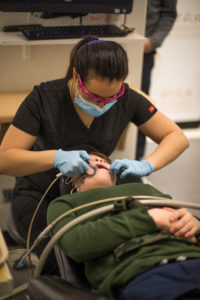

Generally, the procedure takes just one visit. Placing dental sealants can be a very easy process. The tooth is cleaned, conditioned, and dried. The sealant is then flowed onto the grooves of the tooth where it is hardened with a special blue light and then buffed. All normal activities can occur directly after the appointment.



Any tooth that shows characteristics of developing decay should be sealed. The most common teeth for a dentist to seal are a child’s back teeth, and of these teeth, the molars are the most common teeth on which dental sealants are placed. The recommendation for sealants should be considered on a case-by-case basis.


The longevity of sealants varies. Sealants that have remained in place for three to five years would be considered successful, however, sealants can last much longer. It is not uncommon to see sealants placed during childhood still intact on the teeth of adults. Our office will check your child’s sealants during routine dental visits and will recommend repair or reapplication when necessary.
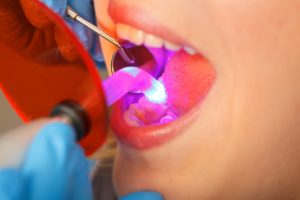

In many cases, it is nearly impossible for children to clean the tiny grooves between their teeth. When a sealant is applied, the surface of the tooth is somewhat flatter and smoother. There are no longer any places on the chewing part of the tooth that the bristles of a toothbrush can’t reach and clean. Since plaque can be removed more easily and effectively, there is much less chance that decay will start.
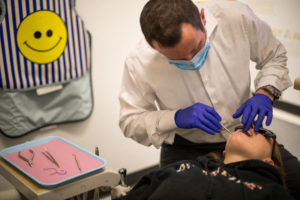

Tooth sealant refers to a plastic that a dentist bonds into the grooves of the chewing surface of a tooth as a means of helping prevent the formation of tooth decay.
Frequently Asked Questions About A Gummy Smile


Gum irritation and overgrowth from braces. This is more likely to happen if the teeth appear shortly before the braces are placed on the teeth. This problem results not from the quality of the orthodontic care but is a result of pre-treatment gum and bone thickness.
Altered passive eruption. The gum and bone normally recede as a part of the normal eruption of the teeth. When this normal recession doesn’t occur, the gums cover too much of the teeth and make them appear “too short”. The teeth are usually not too short. They are usually of normal size but are buried under the gum and bone.
If there are habits such as digit sucking or grinding (bruxism), excessive pressure or tooth wear can alter the appearance of the teeth. The problems may be able to be corrected with orthodontics, surgical procedures, or dental restorations such as crowns or veneers.
Skeletal developmental problems affect the growth of the jaws and the teeth. If orthodontics are instituted between the years of seven and nine, the growth of the jaws can often be controlled and the cosmetics can be improved.
Before treatment, it is critical to properly evaluate the problems and get an accurate diagnosis. Some cosmetic issues can be easily corrected while others like skeletal problems can be more difficult.
Frequently Asked Questions Regarding Mouth Guards


Choose a mouth guard that your child feels is comfortable. If a mouth guard feels bulky or interferes with speech to any great degree, it is probably not appropriate for your child.
There are many options in mouth guards. Most guards are found in athletic stores. These vary in comfort, protection as well as cost. The least expensive tend to be the least effective in preventing oral injuries. Customized mouth guards can be provided through our practice. They may be a bit more expensive, but they are much more comfortable and shock absorbent.
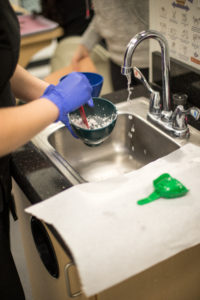

It should be worn during any sport-based activity where there is a risk of head, face, or neck injury. Such sports include hockey, soccer, karate, basketball, baseball, skating, skateboarding, as well as many other sports. Most oral injuries occur when children play basketball, baseball, and soccer.


A mouth guard protects the teeth from possible sports injuries. It does not only protect the teeth, but the lips, cheeks, tongue, and jaw bone as well. It can contribute to the protection of a child from head and neck injuries such as concussions. Most injuries occur to the mouth and head area when a child is not wearing a mouth guard.
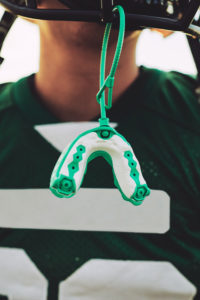

A mouth guard is comprised of soft plastic. They come in standard or custom fit to adapt comfortably to the upper teeth.
PAYMENT & INSURANCE INFORMATION
At Star Orthodontics and Pediatric Dentistry we understand that orthodontic treatment is a significant investment, but the benefits last a lifetime. Our goal is to provide excellent orthodontic care for a reasonable fee. We charge a fee only when treatment is initiated. The initial exam, recall exams, and consultation appointments are complimentary. If treatment is needed, we offer a number of payment options. We offer no interest payment plans, accept credit cards and flexible spending cards. Star Orthodontics and Pediatric Dentistry is in-Network with most Dental insurance plans which can save you money. Insurance coverage will lower your out-of-pocket expense! As a convenience to you, our friendly staff will contact your insurance company to determine your benefits and will file all the paperwork, which can lower your out-of-pocket expense.
Many dental insurance plans provide orthodontic coverage. We request that you provide your insurance information before your New Patient Consultation, so that we may verify orthodontic benefits.
Star Orthodontics and Pediatric Dentistry is in-Network with most Dental insurance plans which can save you money. Insurance coverage will lower your out-of-pocket expense! As a convenience to you, our friendly staff will contact your insurance company to determine your benefits and will file all the paperwork, which can lower your out-of-pocket expense.
Many dental insurance plans provide orthodontic coverage. We request that you provide your insurance information before your New Patient Consultation, so that we may verify orthodontic benefits.
Please be aware that your insurance policy is a contract between you and your insurance company. We will do all we can to assist you with your dental claims.
Discounts
Cash Discount – for payment of the total case fee with cash or check
Family Discount – for more than one family member receiving treatment
Military Discount – for active duty military personnel and their dependents
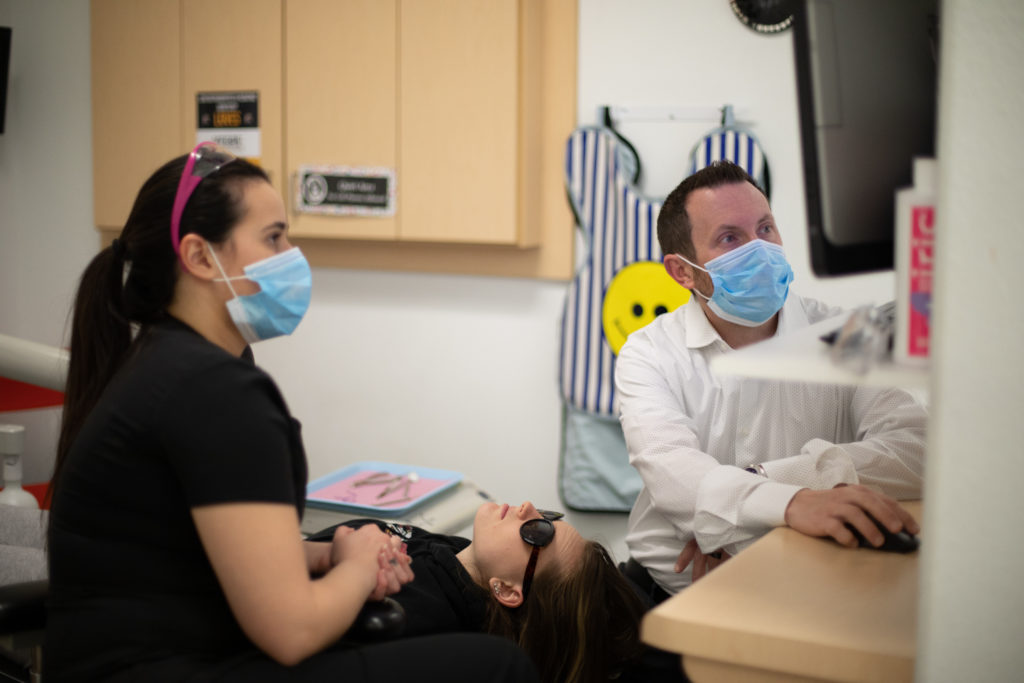

PAYMENT & INSURANCE INFORMATION
Orthodontic treatment is a significant investment, but the benefits last a lifetime. At Star Orthodontics our goal is to provide excellent orthodontic care for a reasonable fee. We charge a fee only when treatment is initiated. The initial exam, recall exams, and consultation appointments are complimentary. If treatment is needed, we offer a number of payment options. We offer no interest payment plans, accept credit cards and flexible spending cards. Star Orthodontics and Pediatric Dentistry is in-Network with most Dental insurance plans which can save you money. Insurance coverage will lower your out-of-pocket expense! As a convenience to you, our friendly staff will contact your insurance company to determine your benefits and will file all the paperwork, which can lower your out-of-pocket expense.
Many dental insurance plans provide orthodontic coverage. At Star Orthodontics and Pediatric Dentistry, we request that you provide your insurance information before your New Patient Consultation, so that we may verify orthodontic benefits.
Star Orthodontics and Pediatric Dentistry is in-Network with most Dental insurance plans which can save you money. Insurance coverage will lower your out-of-pocket expense! As a convenience to you, our friendly staff will contact your insurance company to determine your benefits and will file all the paperwork, which can lower your out-of-pocket expense.
Many dental insurance plans provide orthodontic coverage. We request that you provide your insurance information before your New Patient Consultation, so that we may verify orthodontic benefits.
Please be aware that your insurance policy is a contract between you and your insurance company. We will do all we can to assist you with your dental claims.
Discounts
Cash Discount – for payment of the total case fee with cash or check
Family Discount – for more than one family member receiving treatment
Military Discount – for active duty military personnel and their dependents.
LINKS OF INTEREST
In addition to our own Star Orthodontics website, there are other sites on the Web that provide interesting and helpful dental information. Because we are committed to improving the oral healthcare knowledge of our patients, we are providing the following selection of links to other sites you might find interesting and informative. We have grouped some of the links into various categories to provide quick access to the topics of greatest interest to you.
If you have a suggestion for a new link, please send us an email, as we are always looking for good resources to pass along to our valued patients and visitors to our website. We hope you find these sites helpful!
Mom’s Guide to Caring for Little Teeth
Provides helpful information in regards to your child’s dental health.
American Dental Association
Provides information for the general public including dental care articles, dental insurance information, and information for students interested in dentistry.
Glossary of Dental Terms
American Dental Association’s comprehensive reference provides a glossary of dental terms as they relate to the public.
Oral Health Care & Products
Links to sites providing helpful information on oral health and home care products patients can use to maintain optimum oral health.
Colgate
Trusted resource for dental health information and oral care products.
Crest
One of the world’s most trusted brands in dental products.
Oral-B
Oral-B developed this learning center for dental health education to promote oral care habits that are essential to the lifelong health of teeth and gums. The site includes information and advice for children, adults, and dental health teachers.
Sonicare
Learn how the Sonicare toothbrush creates an indescribable clean feeling, the benefits you can expect, and even take a factory tour.
Other Interesting Websites
National Museum of Dentistry
The museum, a Smithsonian Institution Affiliate, is a lively national center where visitors learn the importance of a healthy smile and are fascinated by the rich history of dentistry.
Children
Here are some fun and entertaining dental related sites for children (and parents).
American Academy of Pediatric Dentistry
Provides excellent information pediatric dentistry for parents with young children.
Crest Kids
Learn how to get your kids interested in learning about dental health, gum disease, and cavities. Includes tips for tykes, parent’s guide, product information, and games.
